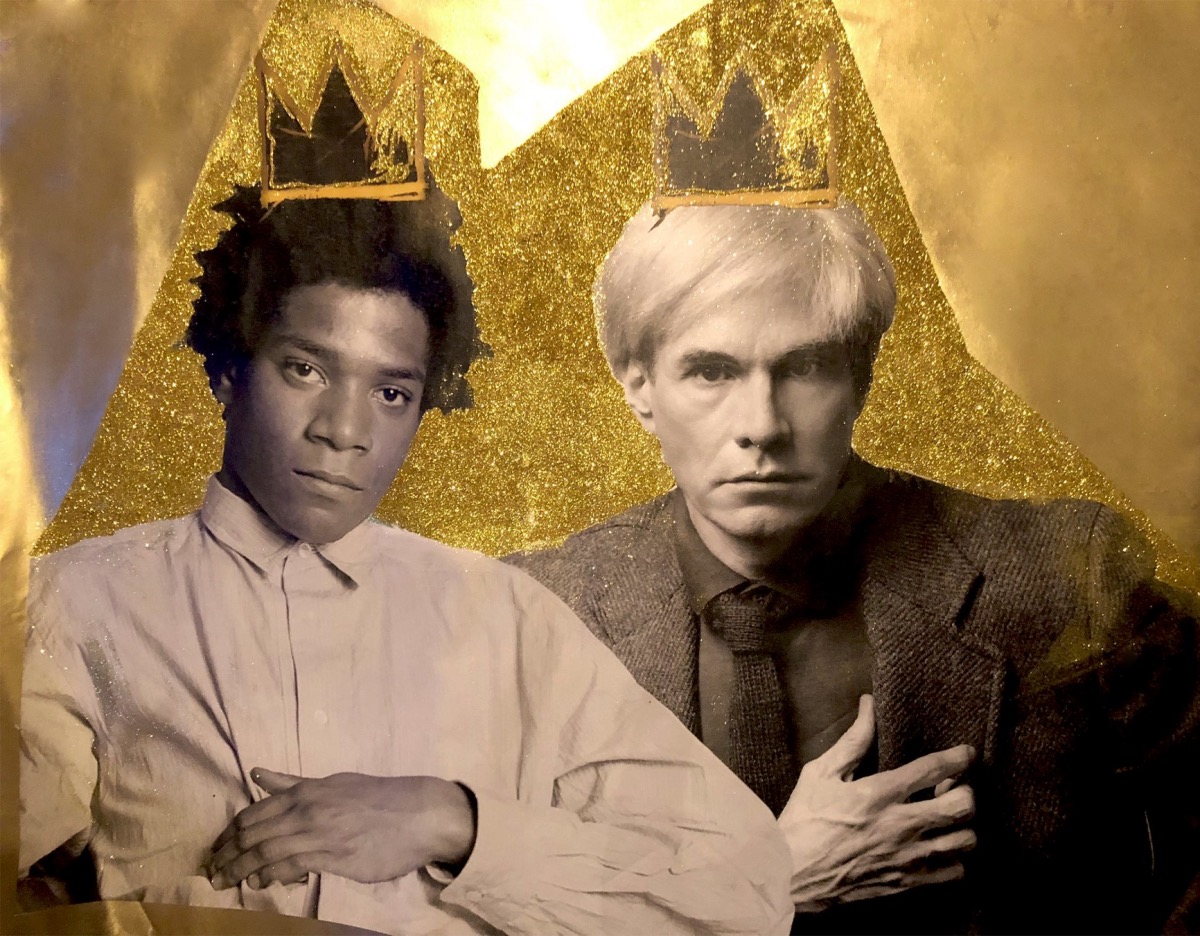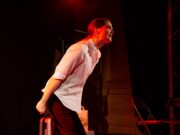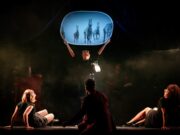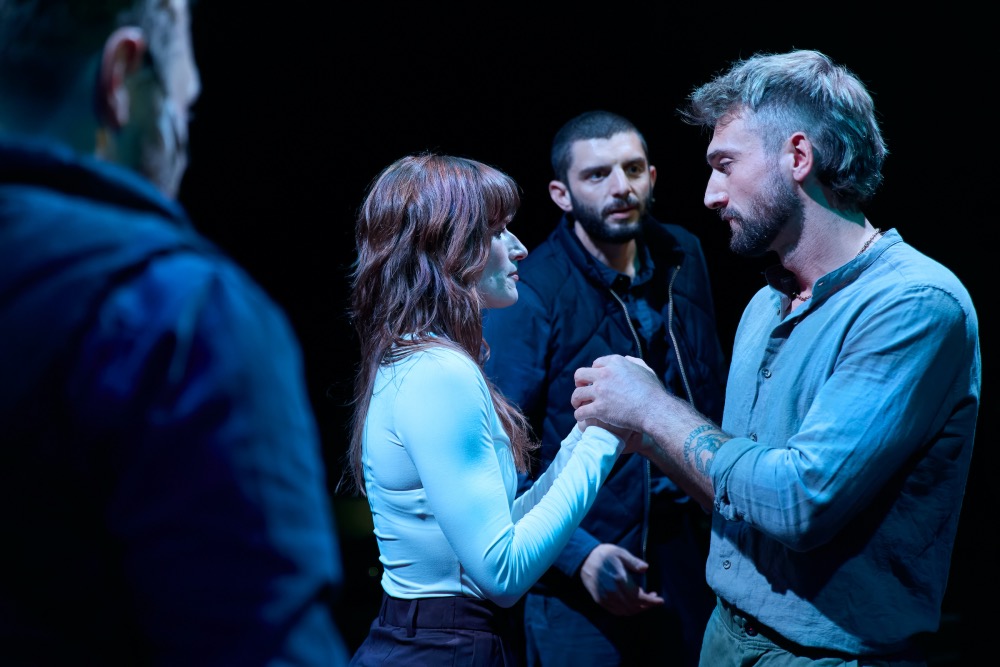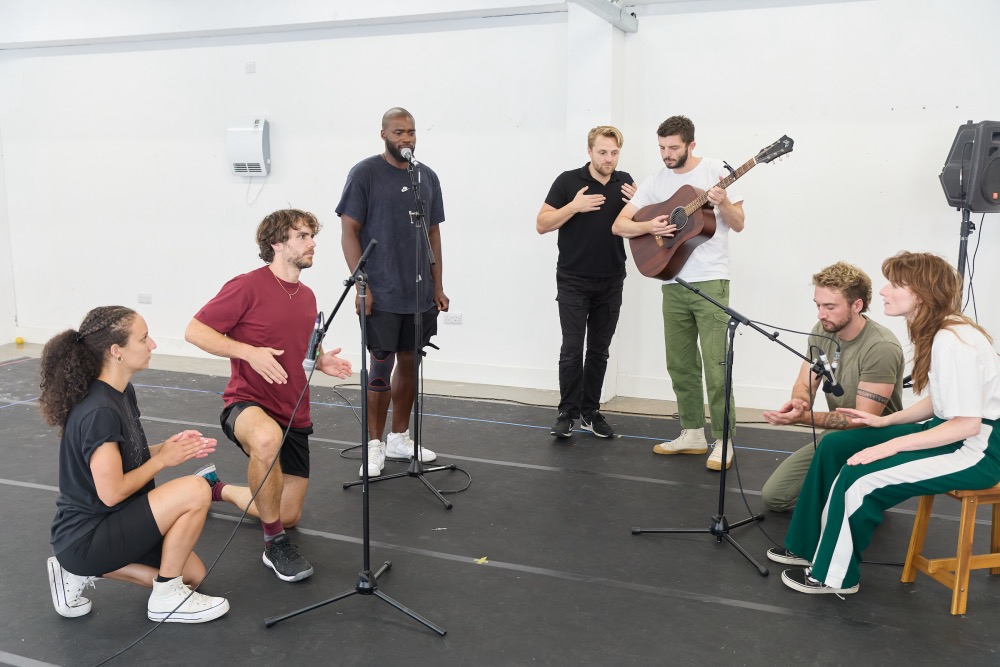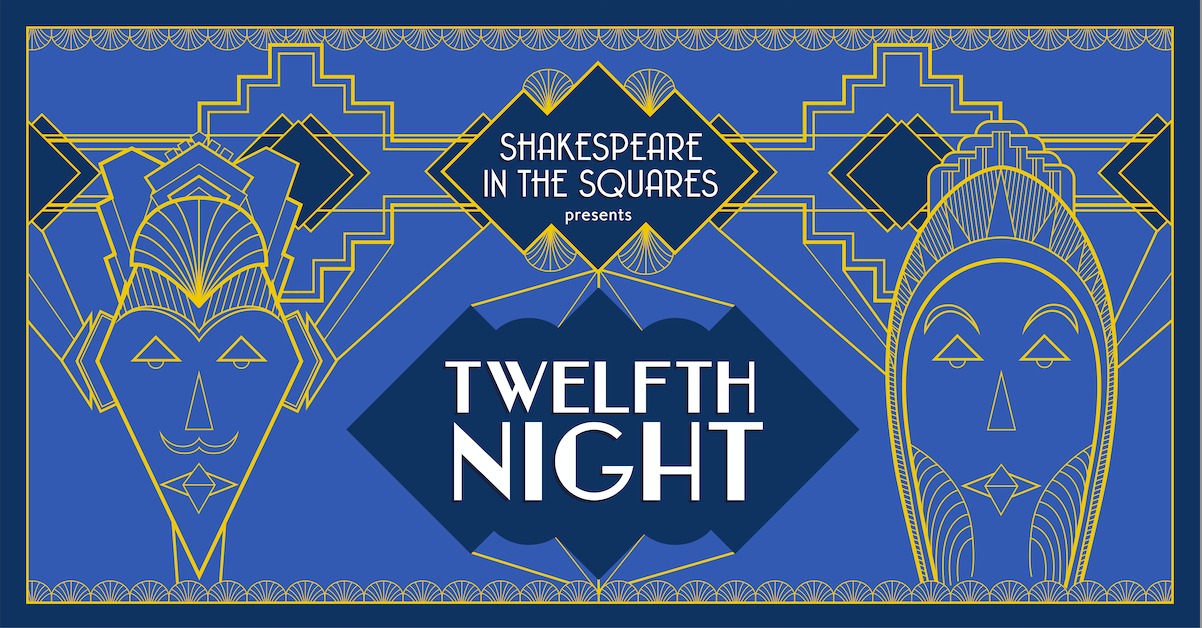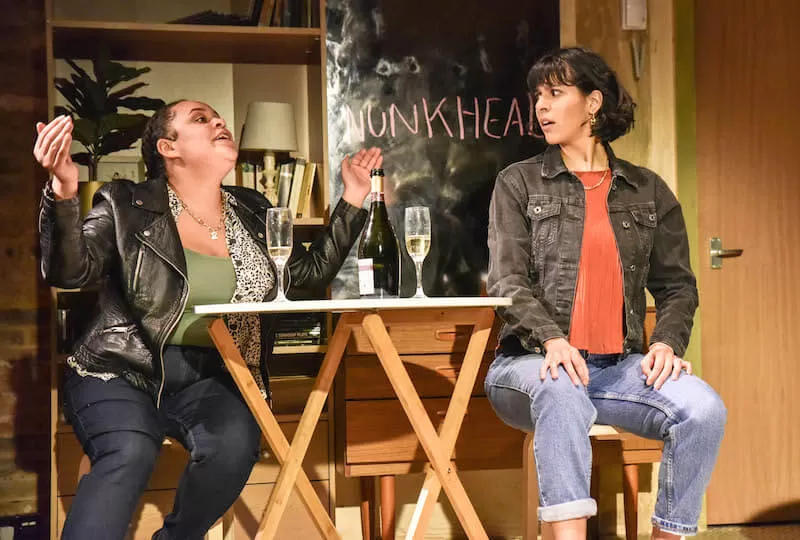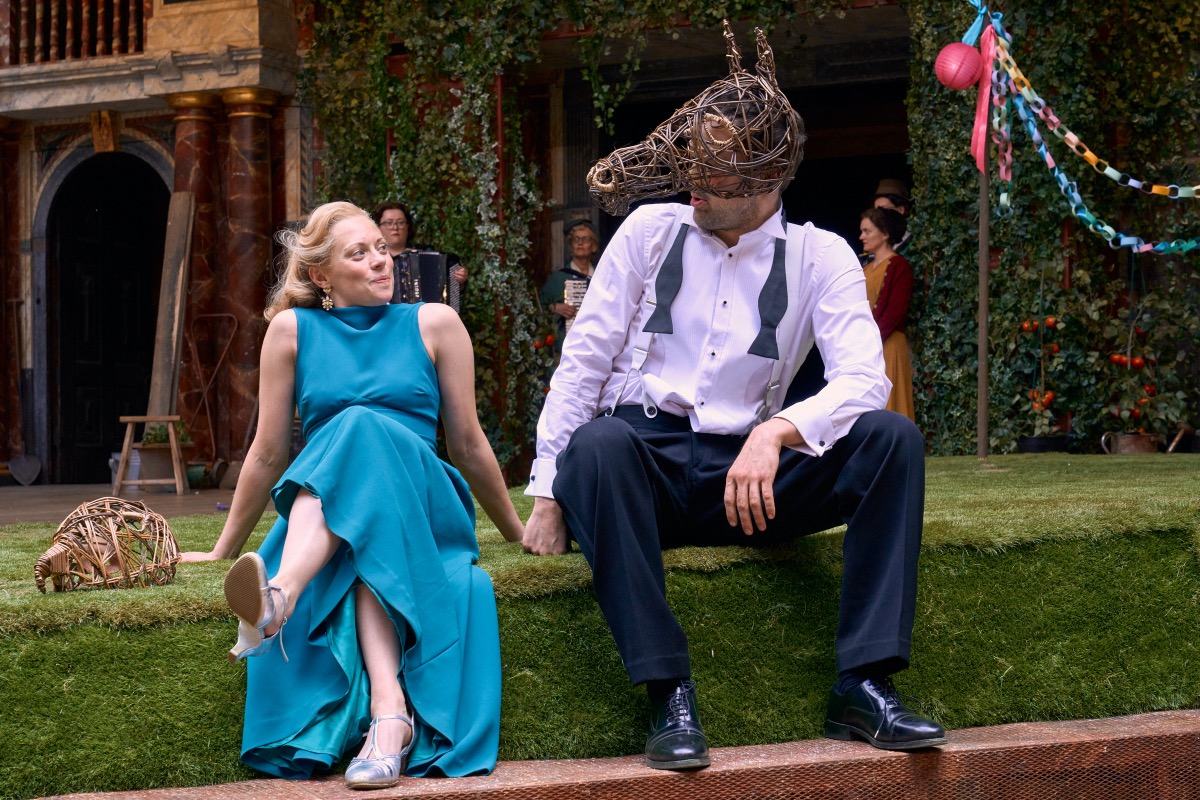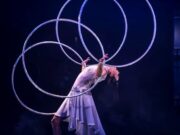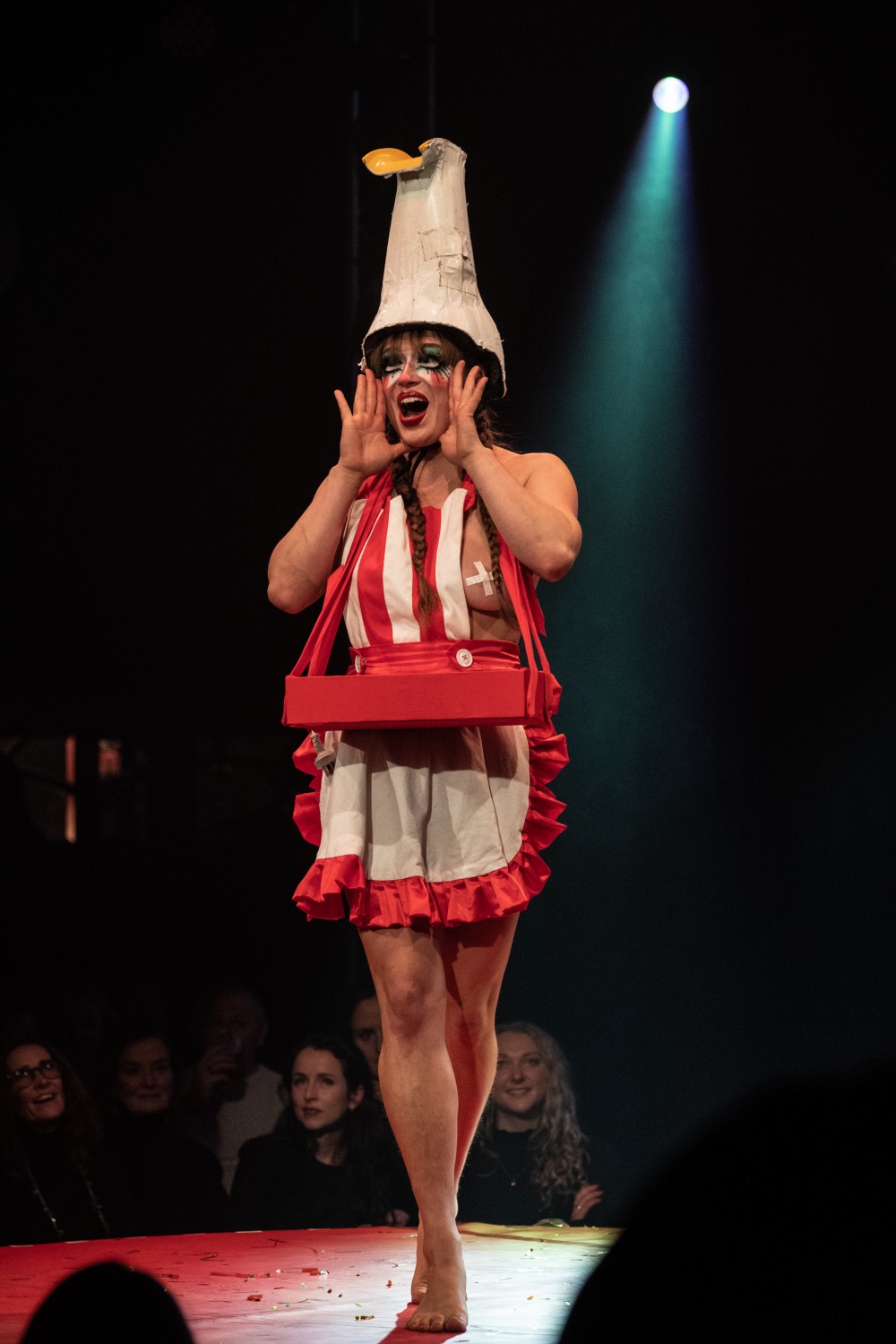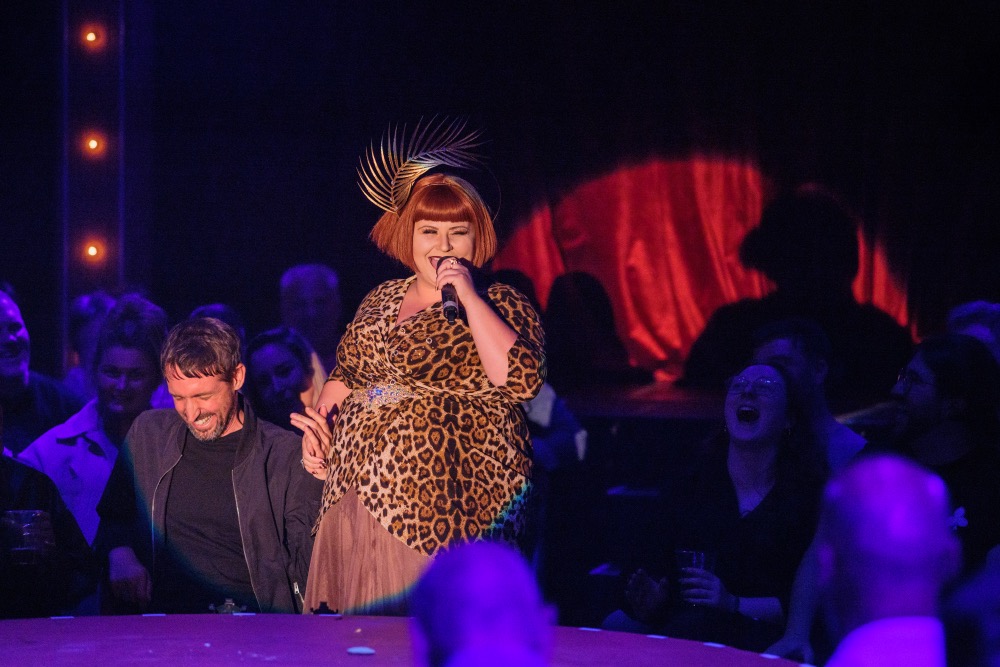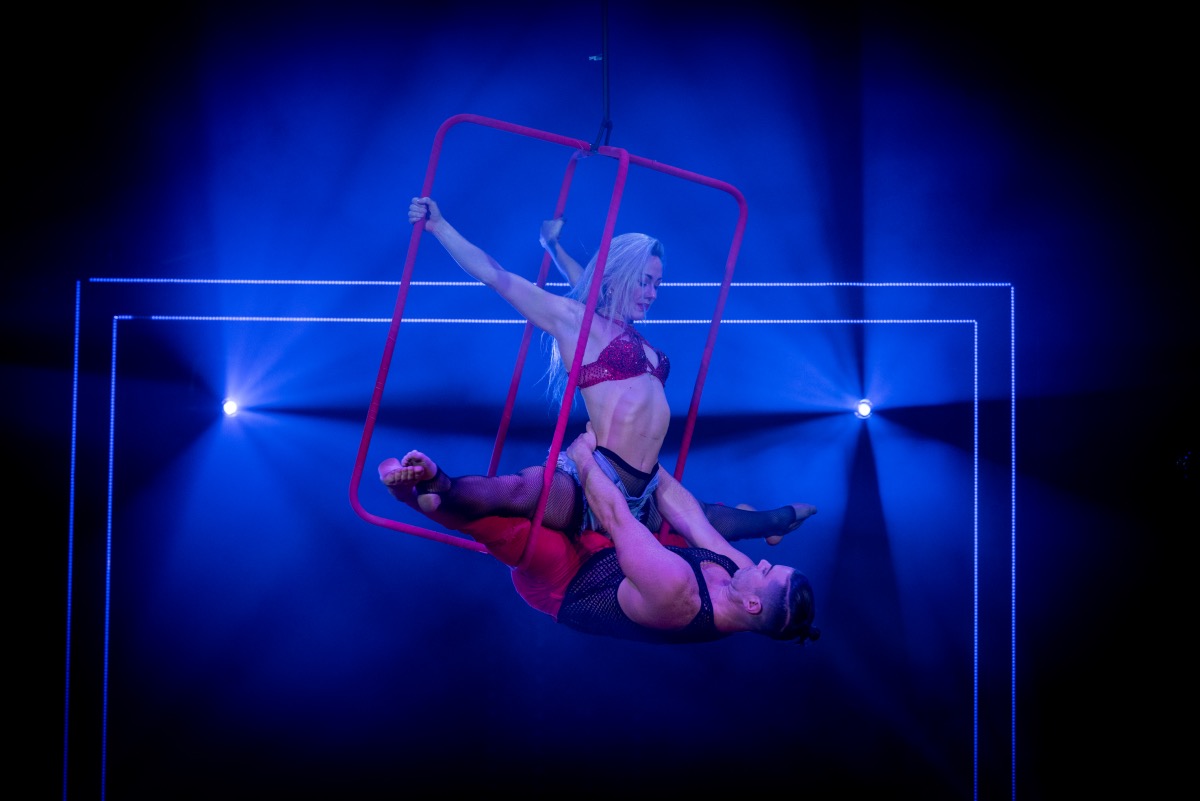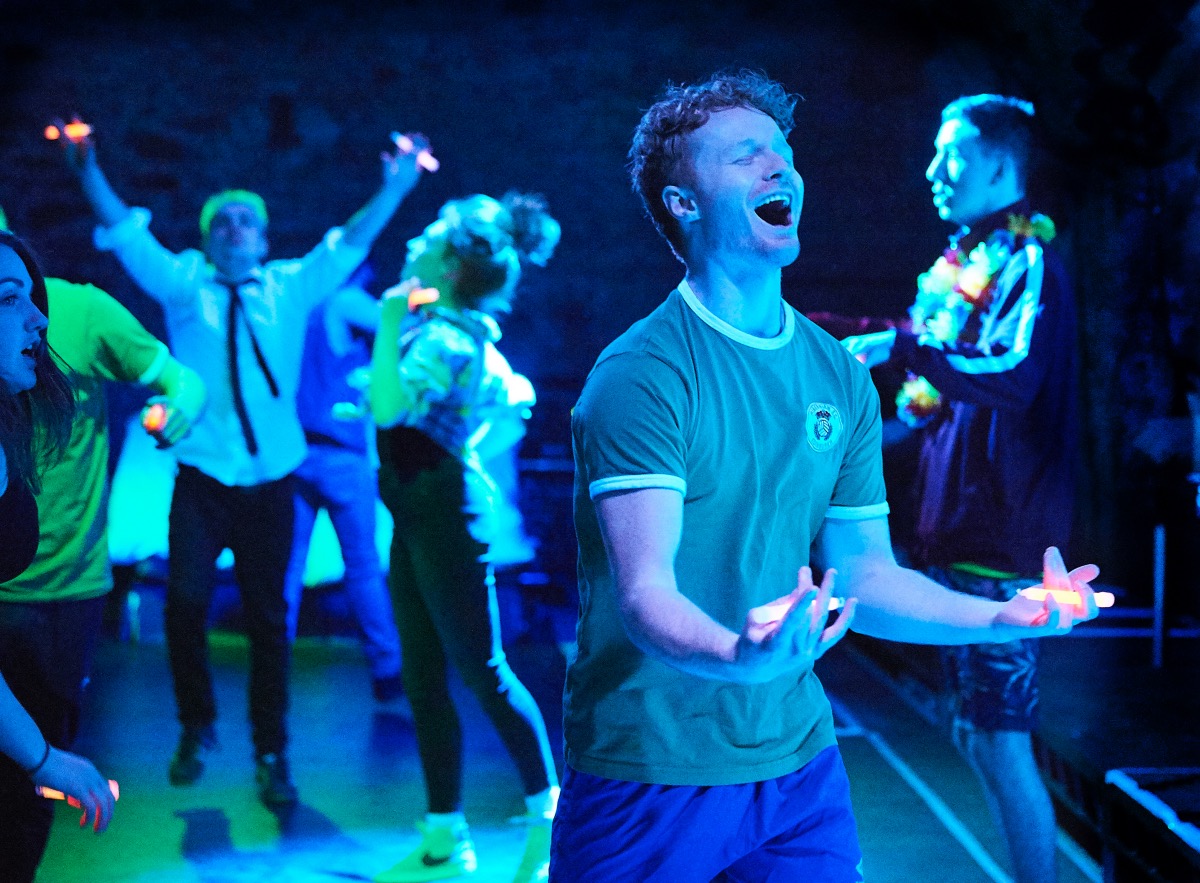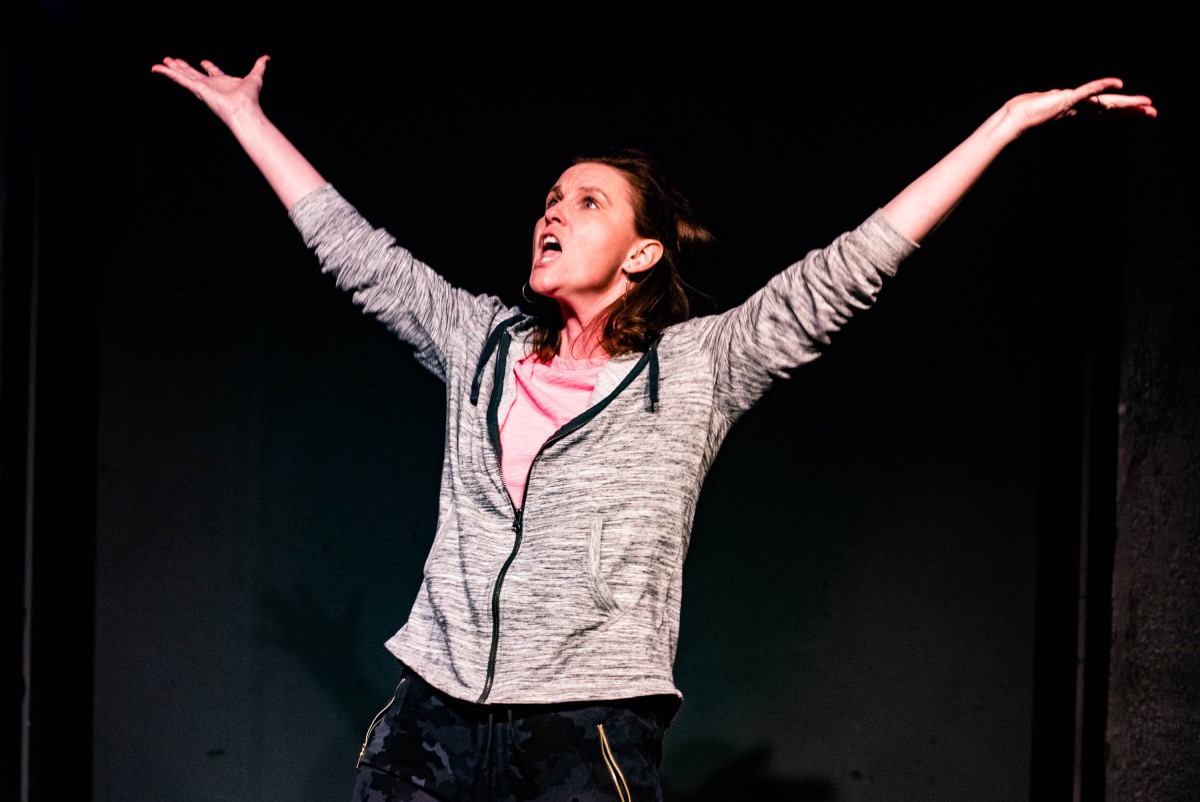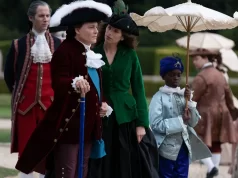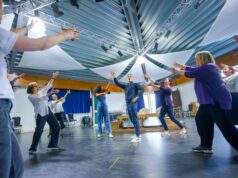
Pedro Calderón de la Barca’s 1635 Baroque verse play is modernised by Declan Donnellan and Nick Ormerod.
The lines of dream versus reality are blurred in this two hour production with no interval. It is fascinating that the 17th century play’s central themes of conflict between free will and fate, as well as restoring one’s honour are still relevant to audiences today.
Set in a mythical version of the kingdom of Poland, this fictional tale tells the story of King Basilio of Poland (played by Ernesto Arias) who imprisons his son at birth in a tower, following a prophecy that the Prince Segismundo (played by Alfredo Noval) would succeed him and be a tyrant who would bring disaster on the country and death to the King. Basilio briefly frees Segismundo, but when the Prince goes on a crazy rampage, the King imprisons him again, persuading him that it was all a dream.
In the subplot, in which Rosaura (played by Rebeca Matellan) seeks to find Astolfo (played by Manuel Moya), who has dishonoured her, the problems of honour and vengeance are explored.
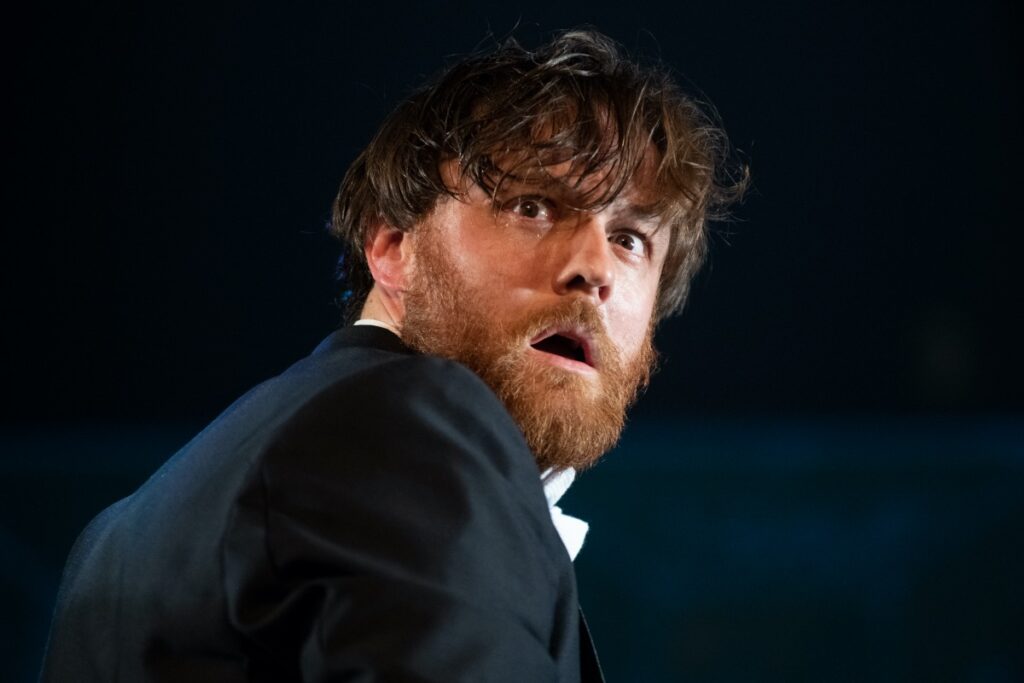
The staging in the Barbican consists of a line of doors where throughout the play we see actors emerge and exit. This is a very effective use of staging. So too is where they have split the seating to create aisle so Segismundo can interact with the audience.
As a person that does not speak Spanish, I had to read the subtitles throughout and by doing so I missed the action in the play that would demonstrate what is going on. From where I was sitting in the Theatre, I think that the subtitles need to closer to the stage, maybe at the same level as the actors.
Overall, Cheek by Jowl’s new production of this Spanish 17th Century classic play about free will, fate and the mystery of life is an entertaining and enjoyable experience. It is full of energy throughout.
Life is a Dream (La vida es sueño) runs at the Barbican until 16 April





